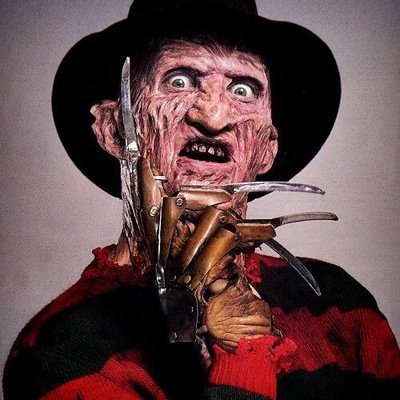Horror narratives have probably been around as long as humans have been telling stories. Our ancient ancestors arguably knew much less than we do and saw the forest, the desert, and the plains alive with evil spirits, monstrous predators, and deadly terrors, both real and imagined. Horror films have always played on this fear of what lurks in the dark, that which wants not only to harm us, but harm us in the most painful and disturbing ways. The genealogy of horror films can be traced back to the oral tradition and the books our progenitors left to us, and yet my experience was something of the reverse.
When I was growing up in the 90's, I was obsessed with horror films that I was never able to see as there was a household prohibition on watching “rated R” films. Naturally this only exacerbated my fixation on these forbidden films, and when the family went to the video store, the horror section was my first priority. I would pour over the VHS cases; the descriptions and the titillating pictures on the back of the box. Sometimes I could get by with films like Poltergeist which were only PG-13, and other times I would be sleeping at a friend's or go to a relative's and enjoy their coveted cables access, chancing upon Night of the Living Dead on USA or the Halloween Hellraiser marathon. Limited exposure to these images and snippets of monster lore made these films and their monsters larger than life for me. At school and on camping trips I would interrogate my friends with penetrating, urgent questions. “Wait, if Jason is undead how did they kill him, and why does he come back? Why does he kill people? Can he talk? So he’s vulnerable to fire?”. I would meditate over their answers and our conversations, or go over the descriptions they gave of how Freddy would dispatch teenagers in their very dreams, and I would in turn dream about monsters and murder, sometimes even during my waking hours.
Eventually these denizens of my mind took such deep root in my consciousness that I began to feel them around me as “real” entities. Of course, if you had asked me if I thought they were real I would have said no, but walking through the forest (we went camping often) or alone downstairs in the dark, I knew Pinhead was waiting in the dark to torture me, or the animated zombie hand from some movie I had seen a clip of on UPN was waiting atop the water heater to strangle me. Of course I categorically denied them but I certainly felt their presences hiding behind the veil of reality.
Imagining stories for them and using the lore I had gotten from my friends, I would imagine ways to defeat them. The world was alive with evil and though my prepubescent mind found the prospect of facing one of these phantos terrifying, it also found the idea exciting and emboldening. I remember while camping in Northern California I got lost in the woods but happened to be carrying a small hatchet with me. While I should have been worried about bears, kidnappers, or plain ol’ exposure, the only thing on my mind while I made my way back to camp was what I would do if I encountered Jason. I couldn’t run very fast so I would have to face him. My hatchet probably wouldn’t do much damage against him, but I could use it to fashion a spear that could at least buy me some time in getting away from him. So I found a large, sturdy limb and sharpened the tip. My mom, who had frantically been looking for me, must have been alarmed in the extreme to see her missing son emerge from the bushes of the campsite with ax and spear drawn and battle ready.
In the same way folk stories and mythology probably fed the imaginations of youths in ancient egypt and pre-columbian america, the box art of horror films and the stories my friends told about them created a rich constellation of creatures that for me at the time, inhabited the dark pockets of my world.
Later on when I actually got a chance to watch the films these creatures came from, I was excited but also a little disappointed. While there were thrills and chills to be had, and disturbing images that shook me, they never felt as grave or as real as when they were filtered through my young imagination. It’s often said horror books are more effective at instilling dread than film because one’s mind is better at creating potent fears than someone else imagination. I don't think this is entirely true but there is no doubt that fear is a primal emotion that is integral to the human experience. Of course, I think many kids from my generation could tell similar stories, but I believe it was my not having been exposed to the films themselves, letting my imagining do the work of storytelling, that made my particular experience so emotionally potent and an unlikely inspiration for a rich oral tradition where me and my friends shared chilling tales around the campfire.
-The Berkeley Blazer






No comments:
Post a Comment